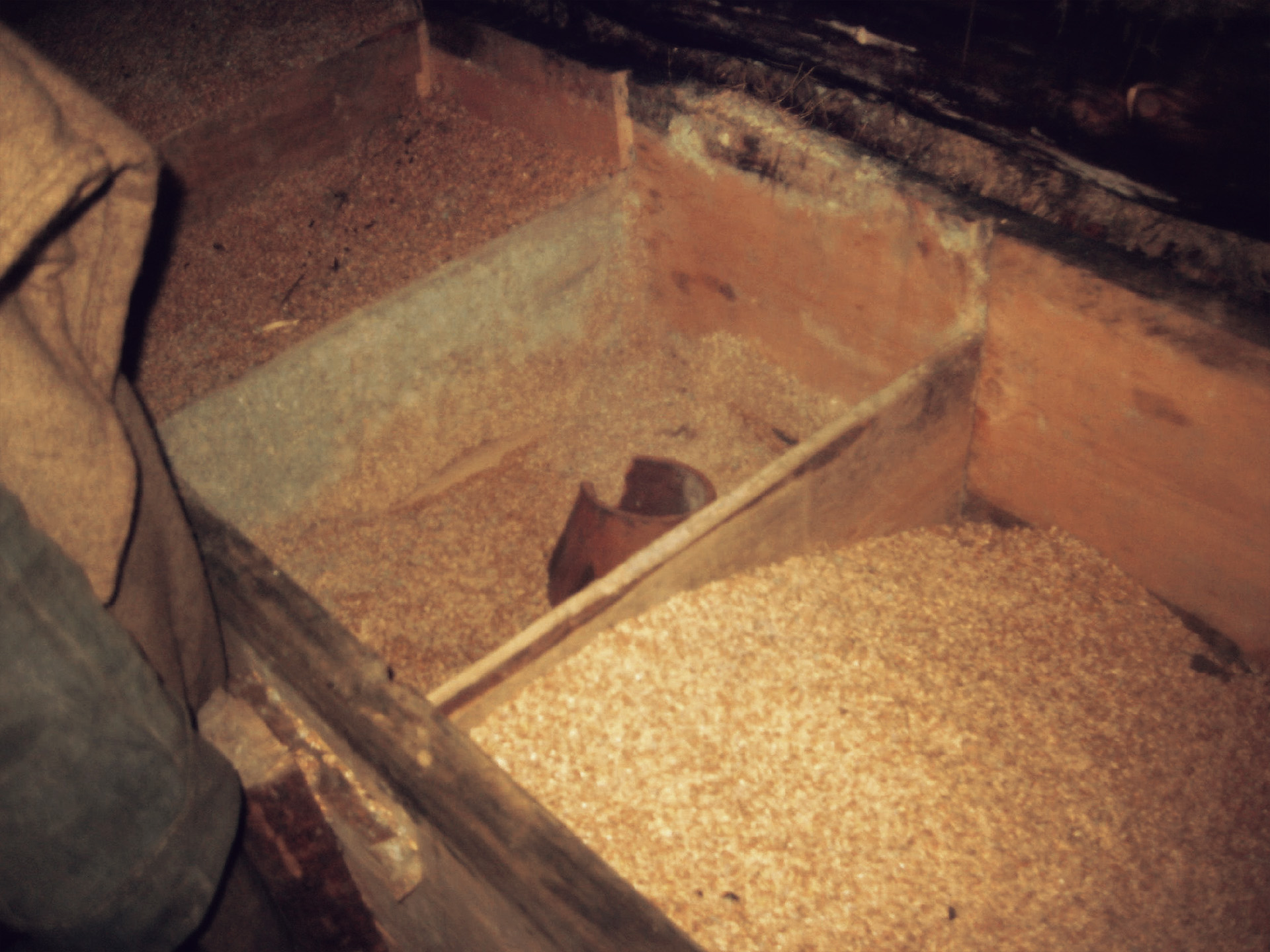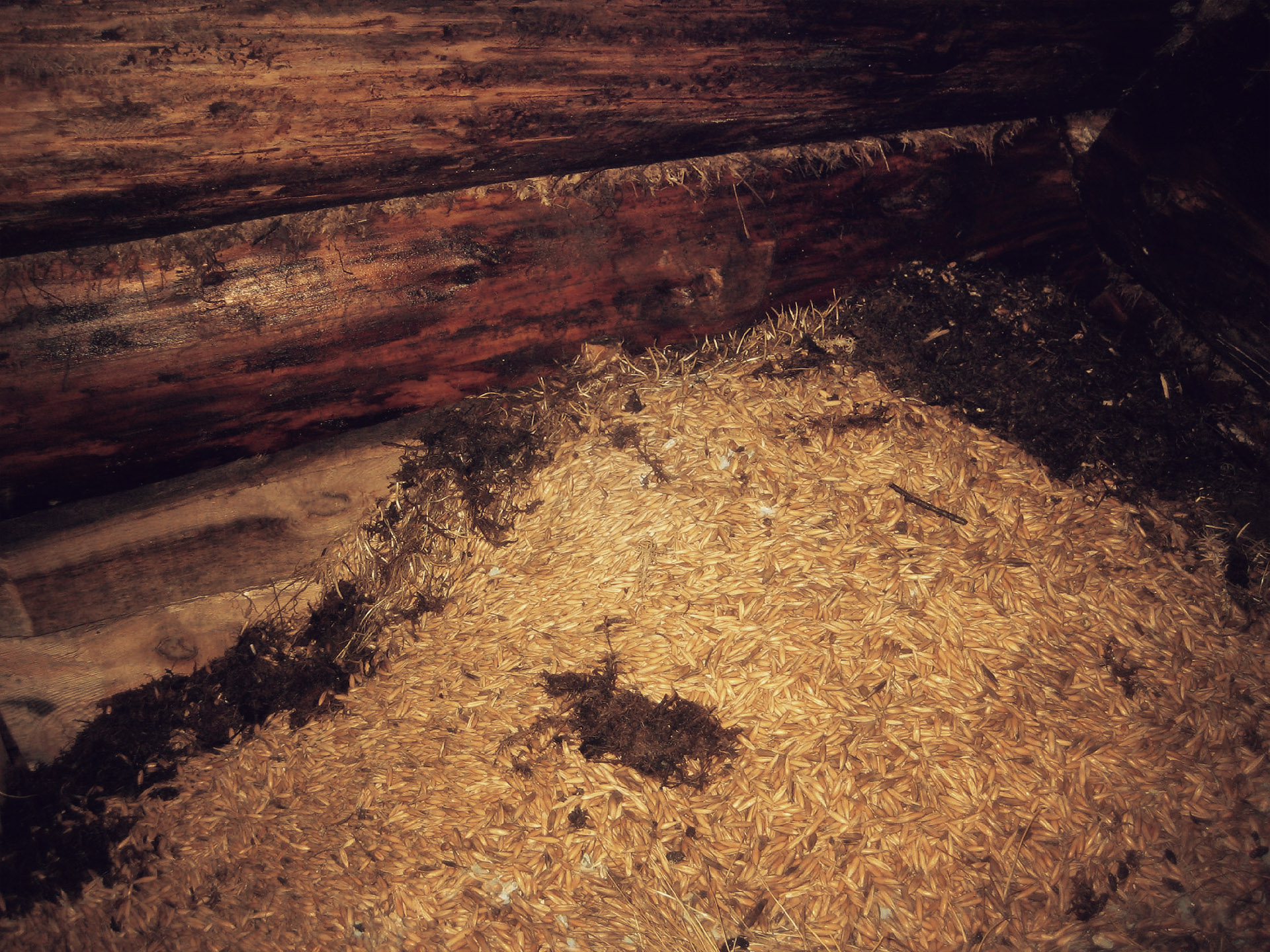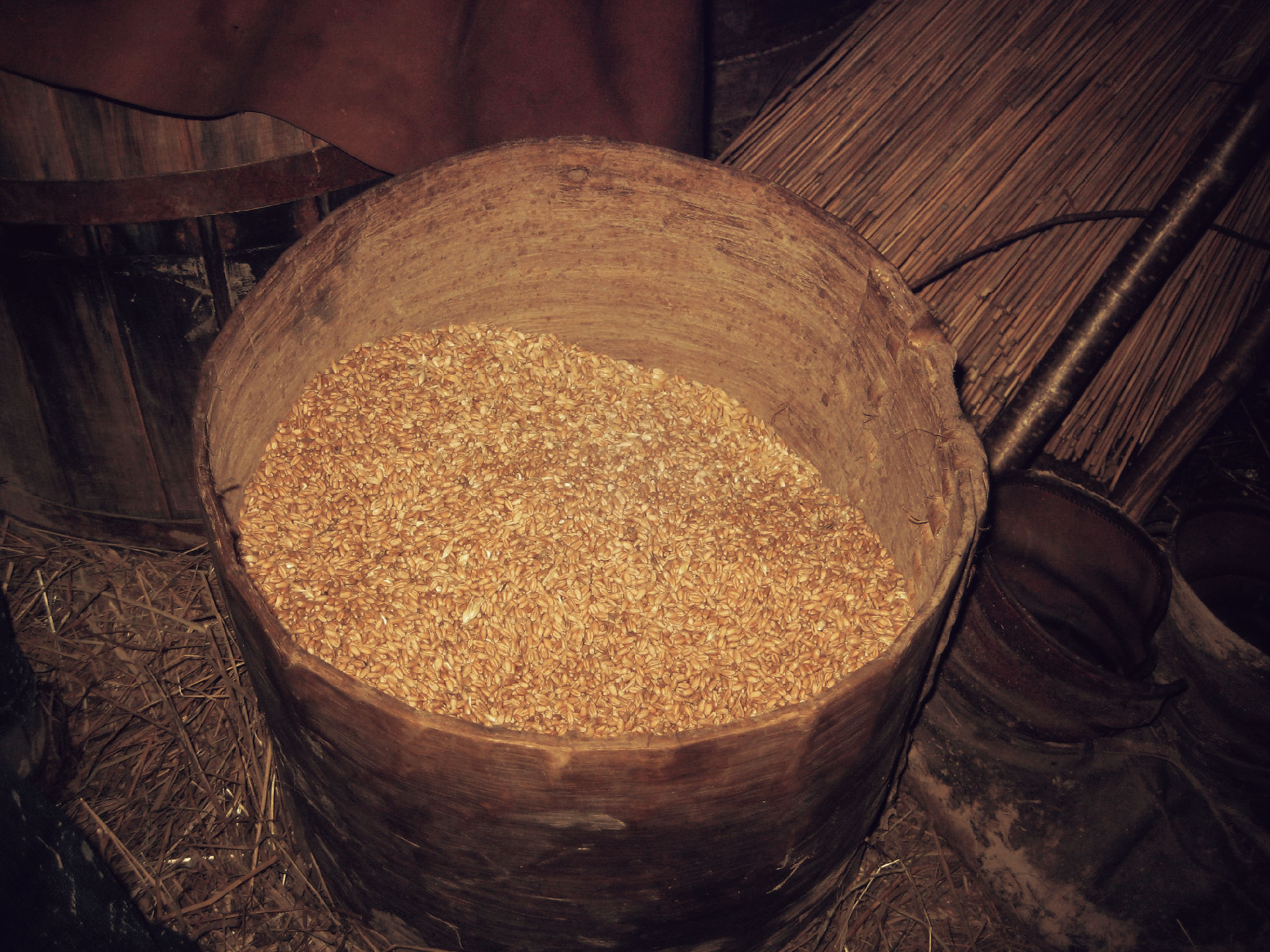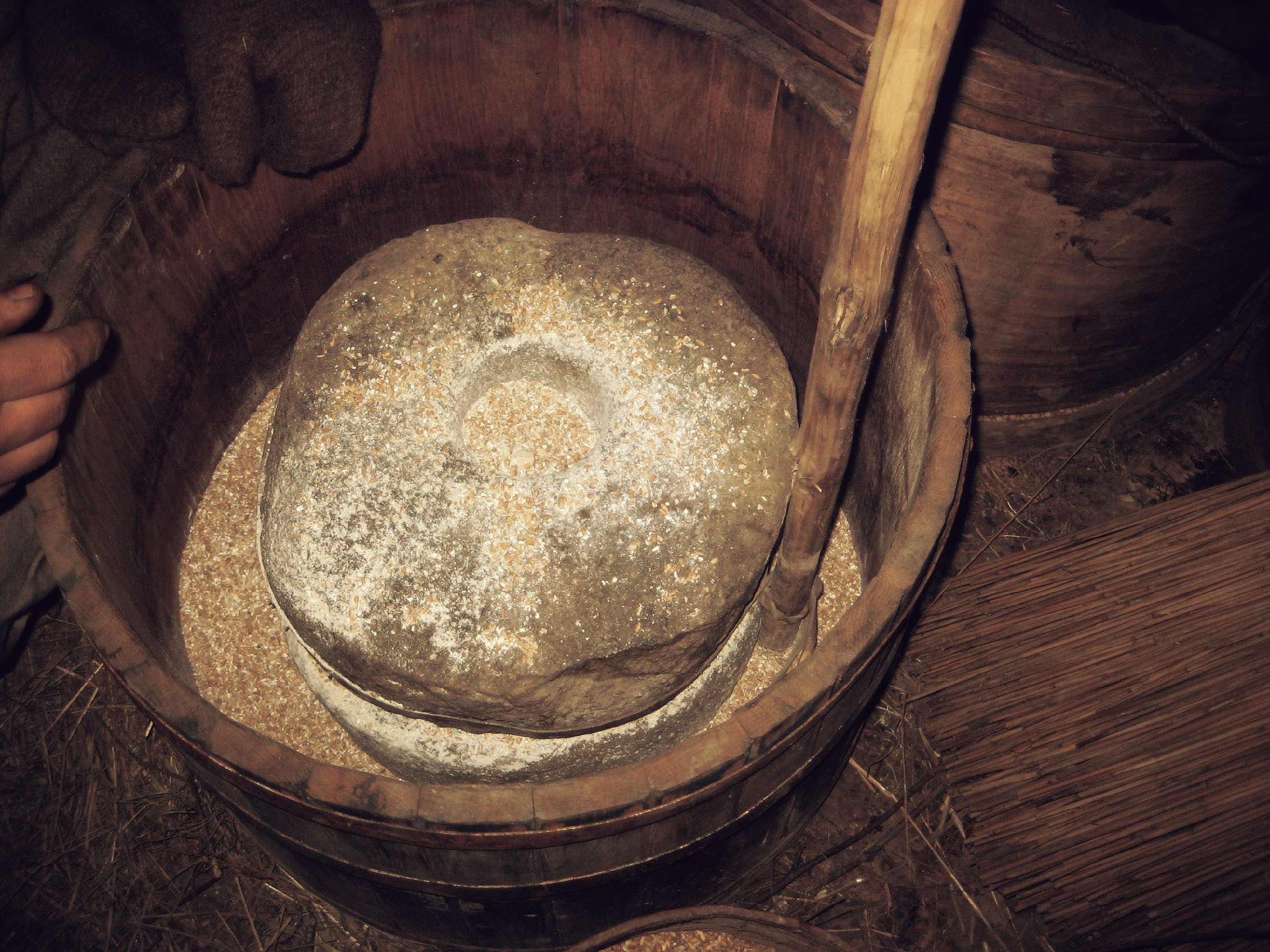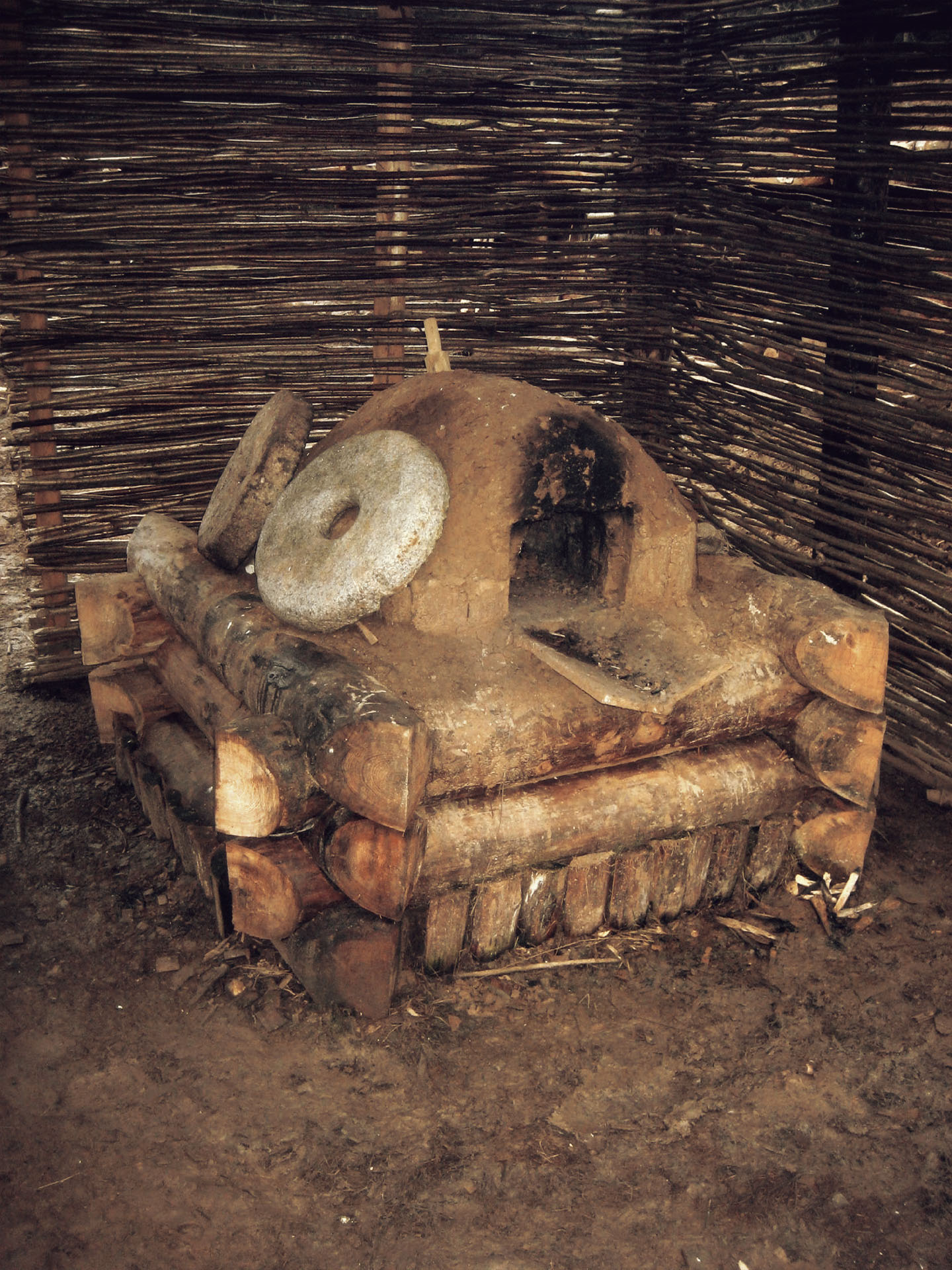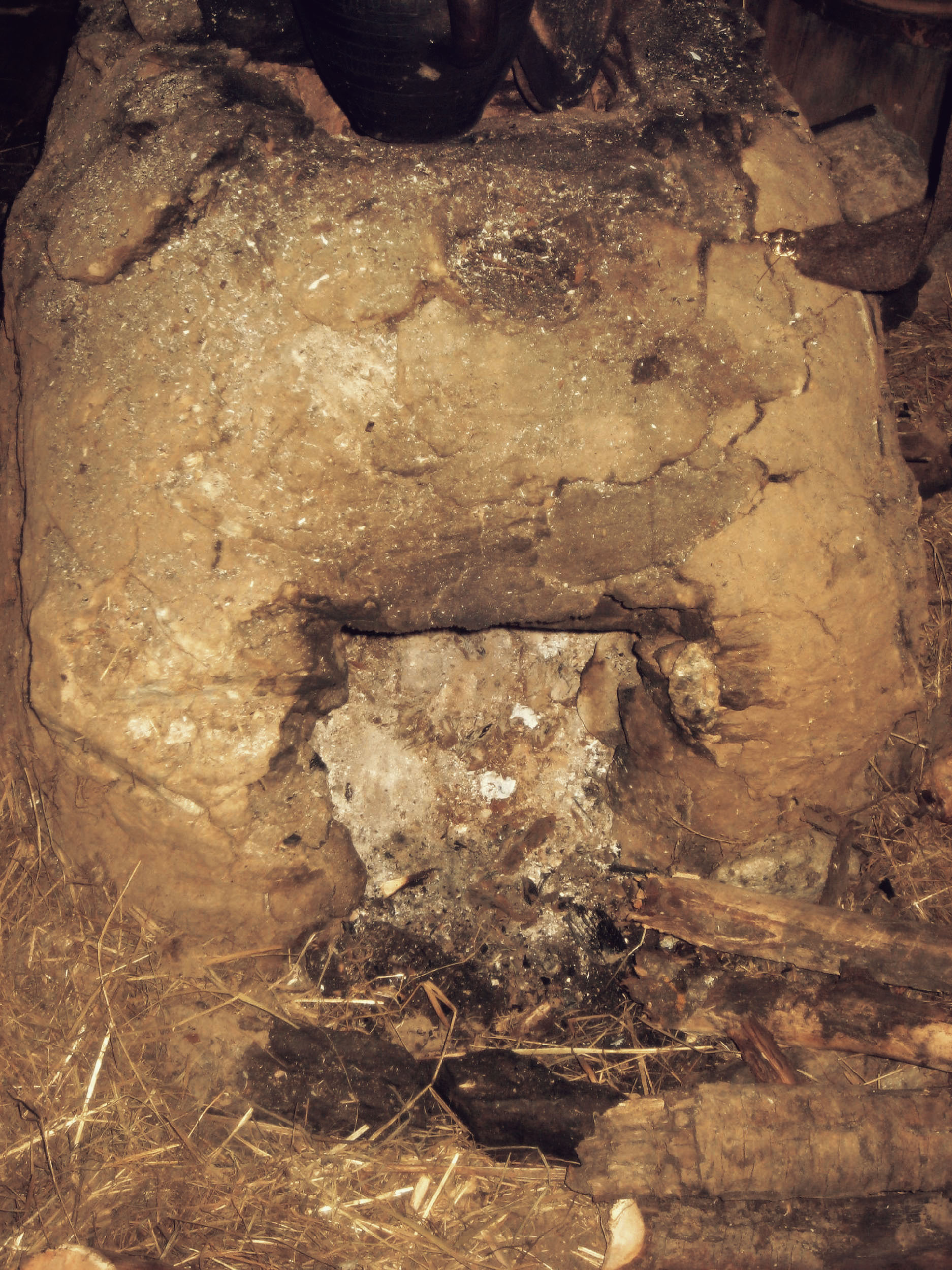From the beginning Pavel had difficulties with baking: mice attacked grain, it was difficult to install the millstones, there were several failures in baking leaven dough.
Generally, at living-history festivals baking bread is not popular. It’s rather painstaking job. Firstly, one needs to build a special oven. Secondly, milestones are quite heavy and bulky things. Thirdly, preparation of yeast dough, warming oven and baking process itself requires a lot of time. Fourth, pleasure of the result sometimes is less then grief due to missed battles, workshops and meeting with friends. So, bakers among the reenactors use some «cheatings»: flour from a store, not very authentic ovens. But Pavel is in the different situation and he can’t apply any «cheatings».

